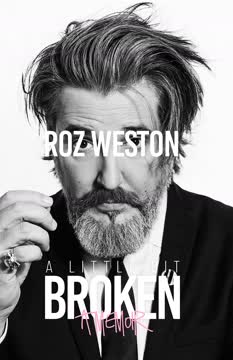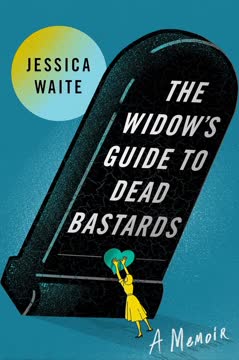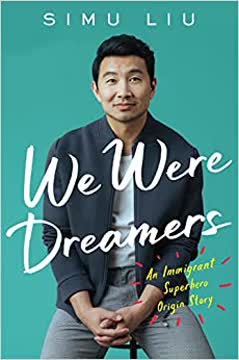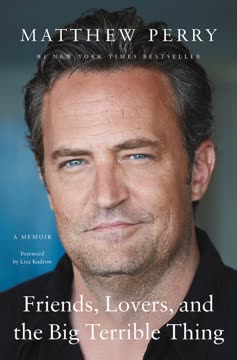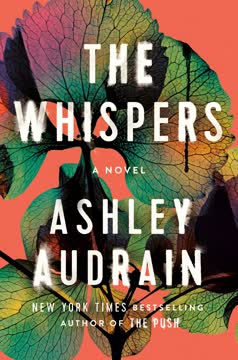Key Takeaways
1. Embracing vulnerability and healing from past trauma
"I've never kept a journal. I've never wanted to chronicle my past, and the few poems, song lyrics, or unsent love letters I've written over the years were torn up, lost, or thrown out."
Confronting the past. Roz Weston's journey begins with his reluctance to face his past, symbolized by his aversion to journaling. This avoidance stems from deep-seated trauma and self-doubt. However, as he learns to confront his experiences, he begins to heal.
The power of vulnerability. Throughout the book, Weston gradually opens up about his struggles with self-harm, anxiety, and Tourette's syndrome. This vulnerability becomes a source of strength, allowing him to connect more deeply with others and himself.
- Key moments of vulnerability:
- Sharing his Tourette's diagnosis
- Opening up about self-harm behaviors
- Discussing his father's affair and its impact on the family
2. The impact of family dynamics on personal growth
"If I was stressed, worried, confused, frustrated, or afraid, he'd fix that too. Sometimes with compassion or the blunt truth, other times with a hug. My old man knew the healing power of a good hug."
Father-son relationship. Weston's relationship with his father forms a central pillar of his personal development. His father's love, imperfections, and eventual loss profoundly shape Weston's journey.
Family as a foundation. The book illustrates how family dynamics, both positive and negative, influence one's sense of self and ability to form healthy relationships. Weston's experiences with his parents and brother provide both support and challenges throughout his life.
- Key family influences:
- Father's unconditional love and support
- Mother's resilience and practical wisdom
- Brother's unwavering presence and friendship
3. Navigating love, loss, and self-discovery
"I never wanted Missy to fall in love with me, but I did want to be the person she thought she fell in love with. And that right there is the thing I would repeat—the mistake I would make—for most of my life."
Patterns in relationships. Weston's early experiences with love, particularly with Missy, set a pattern of becoming what others want him to be rather than his authentic self. This pattern repeats throughout his relationships, causing pain and confusion.
Journey to authenticity. The book traces Weston's gradual journey towards authenticity in relationships. From his tumultuous marriage to Taylor to his transformative relationship with Katherine, he learns to be genuine and vulnerable.
- Key relationships:
- Missy: First love and loss of innocence
- Taylor: Failed marriage and lessons in compatibility
- Katherine: Finding true partnership and acceptance
4. Overcoming addiction and self-destructive behaviors
"Burning myself gave me everything and asked nothing in return. The snap of flint off the lighter, watching the end of a needle go from silver, to black, to red, then white. The feeling of my skin popping up in tiny lines and dots when I'd drag the tip of it across my body was like meditation."
Self-harm as coping. Weston's struggle with self-harm is depicted as a form of emotional release and control. He uses it to cope with internal pain and anxiety, finding a twisted sense of comfort in the act.
Journey to healing. The book chronicles Weston's gradual journey away from self-destructive behaviors. This includes his battles with substance abuse, particularly his addiction to painkillers following his collapsed lung.
- Steps towards healing:
- Recognizing the root causes of self-harm
- Seeking professional help (therapy)
- Finding healthier coping mechanisms
- Building supportive relationships
5. The power of authenticity in relationships and career
"I was pretty sure my new boss hated me, and I was more than sure I didn't like him either, but we got along in a weird way. Like two people forced to collaborate on a common goal that's mutually beneficial."
Professional growth. Weston's career trajectory is marked by a struggle between conformity and authenticity. He initially succeeds by being what others want him to be, but finds true fulfillment when he embraces his unique voice.
Authentic relationships. The book emphasizes the importance of genuine connections, both personal and professional. Weston's relationship with Katherine and his eventual partnership with Mocha on the radio show exemplify the power of authenticity.
- Key career moments:
- Internship with Howard Stern
- Hosting "Last Call"
- Joining Entertainment Tonight Canada
- Creating "The Roz & Mocha Show"
6. Finding purpose and identity beyond external validation
"I was a kid who had incredible confidence but pretty low self-esteem. I've always believed that when you're young, those two things are built in two very different ways. Confidence comes from people telling you you're great. Self-esteem is built by doing things that are great."
The illusion of confidence. Weston distinguishes between external confidence and internal self-esteem. His journey involves recognizing that his outward bravado often masked deep-seated insecurities.
Building true self-worth. The book traces Weston's path to finding genuine self-esteem through accomplishments, self-acceptance, and meaningful relationships. This journey involves shedding the need for constant external validation.
- Steps to building self-esteem:
- Recognizing and challenging negative self-talk
- Setting and achieving personal goals
- Embracing vulnerabilities and imperfections
- Cultivating supportive relationships
7. The transformative journey of becoming a parent
"How do you replace everything? Well, you can't. I knew I couldn't replace my dad, but I could fill his space. This kid was the best decision I never made, and I was going to even everything out. The world lost a great father when my old man died. I was going to give it another one."
Unexpected parenthood. Weston's journey to fatherhood is unexpected but transformative. The news of Katherine's pregnancy becomes a catalyst for profound personal growth and healing.
Filling the void. Becoming a father allows Weston to process his grief over losing his own father. He sees it as an opportunity to carry on his father's legacy of love and support.
- Key aspects of Weston's approach to fatherhood:
- Embracing vulnerability and openness
- Breaking negative family patterns
- Prioritizing presence and emotional availability
- Balancing career ambitions with family life
8. Learning to grieve and process loss
"Truth is, I have no idea when my dad died or how long it's been. I don't want to know either."
Avoidance of grief. Initially, Weston struggles to process his father's death, avoiding reminders and refusing to acknowledge the passage of time since the loss. This avoidance becomes a barrier to healing.
Journey through grief. The book chronicles Weston's gradual acceptance of his loss and his learning to grieve healthily. This process is intertwined with his personal growth and becoming a father himself.
- Stages of Weston's grief:
- Denial and avoidance
- Anger and self-destructive behaviors
- Bargaining through career success
- Depression and isolation
- Acceptance and integration of loss into his life story
9. The importance of accountability in personal relationships
"I've spent years seeing only the worst in people, when I go looking for it, I always find it. When someone overlaps grief with new love or happiness a little too soon, even friends of friends you hardly know become pearl-clutching, judgmental assholes."
Recognizing patterns. Weston realizes his tendency to see the worst in people and situations, acknowledging how this negatively impacts his relationships and personal growth.
Choosing accountability. The book emphasizes the importance of taking responsibility for one's actions and emotions. Weston's journey involves learning to hold himself accountable rather than blaming others or circumstances.
- Steps towards accountability:
- Acknowledging harmful patterns
- Taking responsibility for actions and reactions
- Communicating openly and honestly in relationships
- Seeking and accepting feedback from others
10. Balancing ambition with personal fulfillment
"I'd spent too long confusing guilt and love. I still had this loyalty to Taylor, even though I knew whatever it was we'd had was long gone."
Career vs. personal life. Weston's journey involves learning to balance his ambitious career goals with personal fulfillment and meaningful relationships. He initially prioritizes professional success at the expense of personal happiness.
Finding harmony. The book chronicles Weston's path to integrating his career ambitions with his personal life, particularly through his relationship with Katherine and becoming a father.
- Key moments of balance:
- Choosing to pursue radio while maintaining TV career
- Prioritizing relationship with Katherine over L.A. opportunity
- Embracing fatherhood while continuing professional growth
- Creating a show that aligns with his authentic self
Last updated:
FAQ
What is A Little Bit Broken: A Memoir by Roz Weston about?
- Deeply personal memoir: The book chronicles Roz Weston’s journey through grief, addiction, mental health struggles, and personal growth, revealing the hidden battles behind his public persona as a TV and radio personality.
- Themes of brokenness and healing: Weston explores what it means to feel “broken,” the obsession with becoming “fixed,” and the reality that “it never gets better, but it does get easier.”
- Family, trauma, and legacy: The memoir delves into his childhood, family dynamics, early career, and relationships, including difficult topics like molestation, self-harm, and his father’s illness and death.
- Purpose and hope: Weston writes to leave a legacy for his daughter and others who feel broken, offering hope, survival strategies, and a message of embracing vulnerability.
Why should I read A Little Bit Broken: A Memoir by Roz Weston?
- Raw and honest storytelling: The memoir provides an unfiltered look at mental health, addiction, and trauma, making it relatable and deeply human.
- Unique perspective on Tourette’s: Weston shares his experience managing Tourette syndrome in the public eye, breaking stereotypes and increasing awareness.
- Inspiration for resilience: His journey from self-harm and addiction to becoming a loving father and successful media personality offers hope to anyone facing personal challenges.
- Challenging stigma: The book encourages readers to embrace vulnerability and challenges societal norms around masculinity, brokenness, and healing.
What are the key takeaways from A Little Bit Broken: A Memoir by Roz Weston?
- Vulnerability is strength: Weston emphasizes that “without vulnerability there’s no intimacy,” encouraging openness despite fear of embarrassment or judgment.
- Grief and healing are non-linear: The memoir shows that pain may not disappear, but managing it becomes more bearable over time, and grief includes complex emotions like guilt.
- Brokenness is not ruin: The book challenges the stigma around being “broken,” showing it as part of the human experience and a path to growth.
- Support and perseverance matter: Survival requires fighting, seeking help, and relying on family and friends, rather than isolation or denial.
How does Roz Weston describe his experience with Tourette syndrome in A Little Bit Broken: A Memoir?
- Subtle and misunderstood tics: Weston’s Tourette syndrome involves sudden, repetitive facial and neck movements, not the stereotypical vocal outbursts.
- Coping in public: He masked his tics for nearly twenty years using strategies like smoking, chewing gum, and wearing sunglasses to hide symptoms.
- Physical and emotional toll: The tics caused discomfort, pain, and a constant internal battle, leading to headaches and blurred vision.
- Secrecy and stigma: Weston kept his diagnosis private for years, fearing judgment and misunderstanding, which added to his internal struggle.
What role does family play in Roz Weston’s life as described in A Little Bit Broken: A Memoir?
- Father’s complex influence: His father, a Vietnam veteran and recovering alcoholic, was a gentle, present figure who taught resilience and compassion despite a troubled past.
- Brother’s quiet support: Weston’s brother Richard was a protector and confidant, noticing Roz’s tics early and providing steady support.
- Family as safe haven: Family dinners were a source of laughter and storytelling, shaping Weston’s love for connection and narrative.
- Parental challenges: The memoir reveals his parents’ struggles and fears, especially during Roz’s turbulent teenage years and addiction.
How does Roz Weston portray his relationship with his father in A Little Bit Broken: A Memoir?
- Deeply loving and complex: His father was hardworking, protective, and more than his job, leaving a lasting impact on Roz’s values and resilience.
- Impact of illness and loss: His father’s mesothelioma diagnosis and decline forced Roz to confront mortality and the pain of unfinished stories.
- Legacy and inspiration: The father’s strength, love, and approach to “fixing” things inspired Roz’s own journey toward self-acceptance and healing.
- Symbolic stories: The “unfinished story behind the Roadrunner” nickname reflects the mysteries and legacies parents leave behind.
How does A Little Bit Broken: A Memoir by Roz Weston address grief and loss?
- Personal and non-linear grief: Weston describes skipping stages of grief, feeling guilt, and forcing himself to accept his father’s death while denying the pain.
- Isolation and numbness: After his father’s passing, he felt vacant and disconnected, isolating himself emotionally and physically.
- Therapy and self-awareness: Though initially resistant, therapy helped him begin to understand his pain, even if he wasn’t ready to fully embrace it.
- Support from friends: Reconnecting with old friends and receiving honest compassion helped him face the reality of loss.
What insights does Roz Weston share about addiction and self-harm in A Little Bit Broken: A Memoir?
- Addiction as coping: Weston became addicted to opioids after surgery, describing the fog and secrecy of managing pain with pills.
- Self-harm for control: He used burning as a ritual to feel emotions and regain control, not as punishment but as a compulsion and meditation.
- Turning point in recovery: A friend’s intervention marked a painful but pivotal moment in his journey to stop self-harming.
- Importance of seeking help: Weston stresses the need to exhaust all options for help and highlights the dangers of hidden addiction and self-harm.
How did Roz Weston’s career in media develop according to A Little Bit Broken: A Memoir?
- Early start in radio: Weston began working at a major rock radio station in high school, gaining experience that helped him enter college and the industry.
- Breakthrough opportunities: He interned on The Howard Stern Show, becoming Stern’s first Canadian intern, which opened doors in media.
- Balancing roles and struggles: He built The Roz & Mocha Show and worked on Entertainment Tonight Canada, all while battling personal demons and toxic work environments.
- Unique career choices: Weston turned down lucrative offers to prioritize personal connections and stability, negotiating contracts to work in both radio and TV.
What is the significance of Katherine and family in A Little Bit Broken: A Memoir by Roz Weston?
- Transformative love: Katherine represents hope, healing, and unconditional love, helping Roz move past guilt and self-destruction.
- Building a new legacy: Their relationship leads to the birth of their daughter, Roxy, symbolizing new beginnings and the continuation of family legacy.
- Patience and acceptance: Katherine’s patience and support teach Roz to embrace joy, vulnerability, and the possibility of happiness.
- Shared journey of growth: Their partnership is central to themes of forgiveness, growth, and overcoming life’s challenges together.
What advice and methods does Roz Weston offer for those struggling with pain or brokenness in A Little Bit Broken: A Memoir?
- Write it all down: Weston recommends writing every thought, memory, and feeling as a way to process and heal, a practice he adopted while writing the memoir.
- Embrace vulnerability: He encourages breaking the silence around shame and pain, sharing even the hardest parts of life.
- Survival over self-improvement: The focus is on survival and perseverance, not on clichéd self-improvement, for those who still have fight left in them.
- Seek help and connection: Weston’s story underscores the importance of asking for help, leaning on loved ones, and finding purpose beyond pain.
What are the best quotes from A Little Bit Broken: A Memoir by Roz Weston and what do they mean?
- “It never gets better, but it does get easier.” This central mantra acknowledges that while pain may persist, coping becomes more manageable over time.
- “Broken and fixed aren’t words we’re supposed to use to describe people.” Weston challenges the stigma of brokenness, emphasizing that it’s a universal human experience, not a permanent state.
- “Nothing was ever ruined for him. Everything got a second chance. Even if that thing was me.” Reflects his father’s approach to life and inspires Roz’s journey toward self-acceptance and repair.
- “Freedom is simple. It’s two things: the ability to confidently tell someone ‘No’ and have it be respected, and the willingness to walk away from anything without hesitation or fear.” Defines Weston’s personal sense of freedom and empowerment after years of struggle.
Review Summary
A Little Bit Broken receives mostly positive reviews, with readers praising its raw honesty, emotional depth, and engaging storytelling. Many found it relatable, funny, and heartbreaking. Readers appreciated Weston's vulnerability in sharing his struggles with addiction, grief, and mental health. Some critics felt the book was self-indulgent or lacked focus. Overall, readers connected with Weston's journey of self-discovery and resilience, finding inspiration in his ability to overcome challenges and find success despite his past.
Similar Books
Download PDF
Download EPUB
.epub digital book format is ideal for reading ebooks on phones, tablets, and e-readers.
